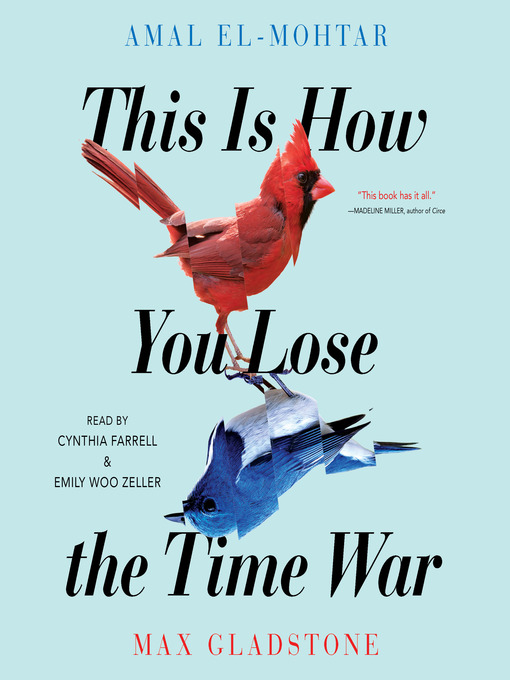Review of 'This Is How You Lose the Time War' on 'Goodreads'
3 stars
3.25 ⭐ Update: After finishing, everything in my early review still stands; the writing did get a little easier to read/ understand as things ramped up to the climax, but there was still so much left unexplained and just left open. A nice little love story, but if you don't understand something don't even worry about it 'cause it doesn't really matter, mostly only the letters and the events of the ending do.
- original review _
I started this and will try to get through it, but it seems like this book's biggest uniqueness is also its downfall - the poetic writing. I will not lie that the deeply floral, expressive, and comparison language is wonderful to see/listen to; but when trying to describe ever quickly changing settings, premises, and other details in a sci-fi timeline hopping environment it just as quickly causes confusion, and kills the pacing, as …
3.25 ⭐ Update: After finishing, everything in my early review still stands; the writing did get a little easier to read/ understand as things ramped up to the climax, but there was still so much left unexplained and just left open. A nice little love story, but if you don't understand something don't even worry about it 'cause it doesn't really matter, mostly only the letters and the events of the ending do.
- original review _
I started this and will try to get through it, but it seems like this book's biggest uniqueness is also its downfall - the poetic writing. I will not lie that the deeply floral, expressive, and comparison language is wonderful to see/listen to; but when trying to describe ever quickly changing settings, premises, and other details in a sci-fi timeline hopping environment it just as quickly causes confusion, and kills the pacing, as I find myself re-reading paragraphs multiple times just to understand exactly what something meant or what happened. And this is a very short book too so it is not as bad but still, it's discouraging to find myself taking forever to finish a quick chapter (and I read high fantasy).
Without spoilers, this book is written in alternating characters voices, different settings, and letters back and forth between them. There is a premise but it just kind of throws you into it without explanation (yet as of where I am at). So trying to track what's going on, whose turn it is, and immerse myself into the newest timeline setting and figure out what they are trying to accomplish amid over the top and flowery language, in the span of <10mins before it changes all over again, is daunting













